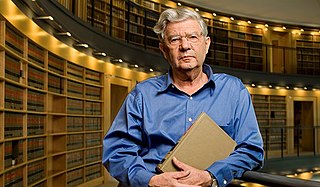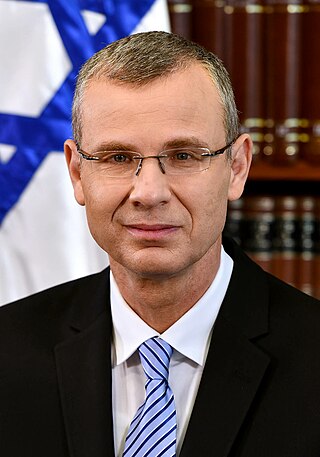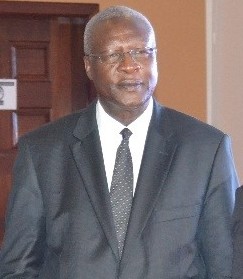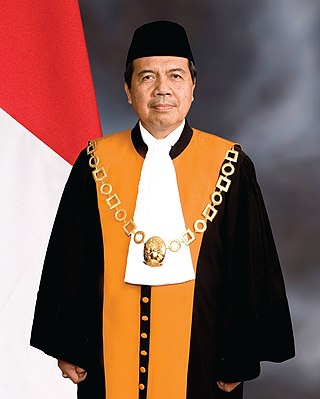Related Research Articles

The Supreme Court of Pakistan is the apex court in the judicial hierarchy of the Islamic Republic of Pakistan.

Alvin Robert Cornelius, H.Pk was a Pakistani jurist, legal philosopher and judge, serving as the 4th Chief Justice of Pakistan from 1960 until 1968. In addition, he served as Law Minister in the cabinet of Yahya Khan, 1969 – 16 December 1971.

Nasim Hasan Shah was a Pakistani jurist and served as Chief Justice of Pakistan. He is best known for his role in the verdict against Zulfiqar Ali Bhutto, the first democratically elected Prime Minister of Pakistan, which resulted in the death penalty.

The Supreme Court of the Islamic Emirate of Afghanistan, known locally as the Stera Mahkama, is the court of last resort of Afghanistan. Under the current Taliban government, the court has no independence or power of judicial review; the supreme leader of Afghanistan holds the ultimate authority to decide and interpret the law and may overturn any decision of any court. The current chief justice is Abdul Hakim Haqqani.

Aharon Barak is an Israeli lawyer and jurist who served as President of the Supreme Court of Israel from 1995 to 2006. Prior to this, Barak served as a Justice of the Supreme Court of Israel from 1978 to 1995, and before this as Attorney General of Israel from 1975 to 1978.
The judiciary of Afghanistan currently consists of the Supreme Court, appeals courts, civil courts and city courts. All justices of the appeals, civil and city courts are presided over by Chief Justice of the Supreme Court.

The judicial system of Egypt is an independent branch of the Egyptian government which includes both secular and religious courts.

Supreme Court of Bangladesh is the highest court of law in Bangladesh. It is composed of the High Court Division and the Appellate Division, and was created by Part VI Chapter I of the Constitution of Bangladesh adopted in 1972. This is also the office of the Chief Justice, Appellate Division Justices, and High Court Division Justices of Bangladesh. As of January 2024, there are 8 Justices in Appellate Division and 89 Justices in High Court Division.

Andrew Stephen Burrows, Lord Burrows, is a Justice of the Supreme Court of the United Kingdom. His academic work centres on private law. He is the main editor of the compendium English Private Law and the convenor of the advisory group that produced A Restatement of the English Law of Unjust Enrichment as well as textbooks on English contract law. He was appointed to the Supreme Court of the United Kingdom on 2 June 2020. As Professor of the Law of England, University of Oxford and senior research fellow at All Souls College, Oxford at the time of his appointment, he was the first Supreme Court judge to be appointed directly from academia.

The judicial officers of the Republic of Singapore work in the Supreme Court and the State Courts to hear and determine disputes between litigants in civil cases and, in criminal matters, to determine the liability of accused persons and their sentences if they are convicted.
The law in Afghanistan is the uncodified Sharia, interpreted according to the Hanafi jurisprudential school. The ruling Taliban has maintained a strict Hanafi-only approach, ignoring enumeration of international rights, that bears greater similarity to Iran and its "Ja'fari only" jurisprudential stance than countries like Pakistan which follow a non-exclusive parliamentary approach to Islamic law. Whilst opposing codification, in the past, the Taliban written policy has instructed judiciary to consult the Mecelle, a late Ottoman codification of Hanafi Mu'amalat, in matters of civil law.

Yariv Gideon Levin is an Israeli lawyer and politician who serves as Deputy Prime Minister and Minister of Justice. He served as Speaker of the Knesset in December 2022, previously serving that role from 2020 to 2021. He currently serves as a member of Knesset for Likud, and previously held the posts of Minister of Internal Security, Minister of Tourism, and Minister of Aliyah and Integration.

Bart Magunda Katureebe is a Ugandan judge and the former Chief Justice of Uganda. He was appointed to that position on 5 March 2015. Before that, he was a justice of the Supreme Court of Uganda.

The Constitutional Court of the Republic of Indonesia is one of the apex courts in Indonesia along with the Indonesian Supreme Court. Its primary role is reviewing the constitutionality of Acts (undang-undang). It also has other functions, including resolving disputes over the powers of state institutions, settling disputes over the results of general elections, deciding on the dissolution of political parties, and supervising impeachment. The last two functions have never been exercised by the Court.
Bahauddin Baha ، was Deputy Chief Justice of the Afghan Supreme Court from 2006 to 2016. Baha also served as a Supreme Court Justice and member of the High Judicial Council of the Supreme Court during the 1980s. Baha served as head of Prime Minister Mohammad Musa Shafiq’s office (1972-1973). In 2002, Baha was appointed as Chairman of the Independent Judicial Reform Commission, one of the three commissions established as part of the Bonn Agreement. Baha later served as Legal Advisor to Afghan President Hamid Karzai. Subsequently, he was nominated and appointed to the Afghan Supreme Court in 2006.
Justice Dr. Dr. h.c. Adel Omar Sherif is the Deputy Chief Justice of the Supreme Constitutional Court of Egypt and a Distinguished Visiting Professor of Law at the Dedman School of Law, Southern Methodist University Dallas, USA.
Hamida Barmaki was a renowned Afghan law professor and human rights activist. She was killed together with her family in a suicide attack.

Muhammad Syarifuddin is an Indonesian jurist who serves as the 14th and current Chief Justice of the Supreme Court of Indonesia since 30 April 2020. He also serves as the Deputy Chief Justice of the Supreme Court Indonesia for judicial affairs, and previously served as the Supreme Court's head of supervision.

Mandisa Muriel Lindelwa Maya is the Deputy Chief Justice of South Africa. She was formerly the President of the Supreme Court of Appeal from 2017 to 2022. She joined the bench in May 2000 as a judge of the Transkei Division of the High Court of South Africa and was elevated to the Supreme Court of Appeal in 2006.
The government of Afghanistan, officially called the Islamic Emirate of Afghanistan, is the central government of Afghanistan, a unitary state. Under the leadership of the Taliban, the government is a theocracy and an emirate with political power concentrated in the hands of a supreme leader and his clerical advisors, collectively referred to as the Leadership. The Leadership makes all major policy decisions behind closed doors, which are then implemented by the country's civil service and judiciary. As Afghanistan is an Islamic state, governance is based on Sharia law and Pashtunwali, which the Taliban enforces strictly through extensive social and cultural policy.
References
- ↑ "Inmates Revolt at Afghan Prison". The Washington Post . February 27, 2006. Archived from the original on November 2, 2012. Retrieved May 10, 2010.
- ↑ Makia Monir (August 7, 2006). "Parliament rejects Hashimzai as SC member". e-Ariana. Retrieved December 9, 2015.